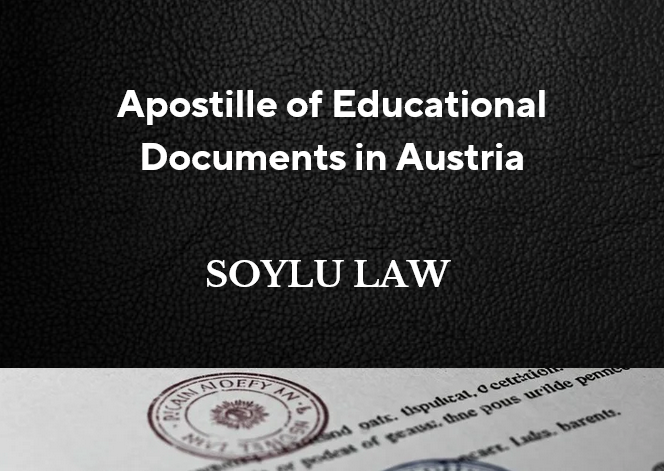Understanding the process of obtaining official criminal record documentation from Denmark is crucial for various international purposes. The Danish system for issuing police clearance certificates is known for its efficiency and digital integration. Whether you need this documentation for employment, immigration, or other official purposes, navigating the Danish bureaucratic system requires understanding specific procedures and requirements. The authentication process, including potential apostille certification and translation services, plays a vital role in ensuring your documents are internationally recognized.
In this article, we’ll guide you through the complete process of obtaining and validating a criminal record certificate from Denmark, including eligibility requirements, application procedures, and important considerations for international use.
How to Obtain a Police Clearance Certificate from Denmark
The process of obtaining official documentation about one’s criminal history in Denmark involves understanding the comprehensive system established by Danish authorities. This documentation, commonly known as a police clearance certificate or criminal record check, serves as an official verification of an individual’s criminal history status. The Danish system is renowned for its digital efficiency and transparent procedures, making it accessible to both residents and non-residents who require such documentation.
Introduction
a. The Danish Certificate System
Denmark maintains a sophisticated system for issuing various types of criminal record certificates. The system operates under the authority of the Danish National Police, who manage and maintain the central criminal registry. This centralized database ensures accuracy and allows for quick processing of certificate requests, typically completed within 5-7 business days.
b. Certificate Terminology
In the Danish context, these documents are known by several official terms. While police clearance certificate is commonly used internationally, other recognized terms include criminal background check and certificate of good conduct. Understanding these variations is crucial as different institutions or countries may require specific terminology on the documentation.
c. Purpose and Applications
These certificates serve numerous essential purposes in both personal and professional contexts. They are frequently required for employment verification, particularly in sectors involving work with vulnerable populations. Additionally, they are necessary for visa applications, residence permits, and various licensing requirements. The certificates may also be requested for adoption procedures or when seeking to work or study in certain foreign countries.
Understanding Danish Criminal Record Certificates
a. Available Certificate Types
The Danish system primarily offers two distinct types of criminal record certificates. The first is the Privat straffeattest (private criminal record), which is commonly used for personal purposes and contains records maintained for 3 years. The second type is the Offentlig straffeattest (public criminal record), which is more comprehensive and typically retained for 5 years.
b. Certificate Distinctions
The key difference between these certificates lies in their scope and content. The private certificate generally shows only serious offenses and current charges, while the public certificate provides a more detailed history, including minor violations and pending cases. The validity period for both types is typically 6 months from the date of issue.
Eligibility Requirements
a. Basic Eligibility Criteria
The Danish system allows both residents and non-residents to apply for a certificate of good conduct. Any individual aged 18 or above can request their own criminal record check. For minors under 18, a legal guardian’s authorization is required. The system also accommodates third-party requests in specific circumstances, such as employers with explicit written consent from the individual concerned.
b. Documentation and Identity Verification
Applicants must provide valid identification to verify their identity. For Danish citizens, a valid NemID or MitID serves as primary identification. Foreign nationals must present their passport or other government-issued identification along with their Danish CPR number if they have one. All identification documents must be current and not expired for more than 3 months.
c. Residency Considerations
While Danish residency is not mandatory for requesting a police clearance certificate, different procedures apply based on residency status. Current residents with a CPR number can use the digital application system, while non-residents may need to follow alternative procedures. Temporary residents staying in Denmark for more than 3 months must register for a CPR number before applying.
Application Process
a. Digital Application
The primary method for obtaining a criminal record certificate is through the Danish Police’s online portal. Applicants can access the system using their NemID or MitID. The digital platform operates 24/7 and provides a streamlined process with automatic verification of identity and residency status.
b. Alternative Application Methods
For those unable to use the digital system, in-person applications are accepted at local police stations. These applications require scheduling an appointment and typically take 15-30 minutes to process. Emergency requests can be handled through this channel, though additional fees may apply.
c. Processing Timeline
Standard applications are typically processed within 5-7 business days. Urgent requests may be processed within 24-48 hours but require justification and incur additional fees. Applications requiring special verification or international authentication may take up to 15 business days.
Document Requirements
a. Primary Identification
All applicants must submit a clear copy of their primary identification. For Danish residents, this includes their yellow health insurance card (sundhedskort) along with a government-issued photo ID. Non-residents must provide their passport or national ID card from their home country.
b. Purpose Documentation
Depending on the intended use, applicants may need to provide proof of purpose. This might include an employer’s request letter, university admission documents, or visa application references. These supporting documents should be dated within the last 30 days.
c. Special Requirements
Foreign nationals must provide additional documentation, including their residence permit if applicable. For authentication purposes, some documents may require apostille certification or embassy legalization. All non-Danish documents must be accompanied by a certified translation if not in Danish or English.
Fees and Payment Methods
a. Standard Fee Structure
The cost of obtaining a police clearance certificate varies based on the type and urgency of the request. A standard digital certificate costs 150 DKK, while expedited processing incurs an additional fee of 300 DKK. For certificates requiring special authentication or international validation, the fee may increase to 400 DKK. These fees are subject to annual review and adjustment by the Danish National Police.
b. Payment Options
The Danish system accepts various payment methods to accommodate different needs. The primary payment platform integrates with major Danish payment cards, international credit cards, and MobilePay. For digital applications, payment must be completed through the secure online portal using either a credit card or NemKonto (Easy Account). In-person applications at police stations accept both card payments and cash in Danish Krone.
c. Fee Reduction and Waivers
Certain categories of applicants may qualify for reduced fees or complete waivers. Students requiring certificates for educational purposes can apply for a 50% reduction in fees with valid documentation. Job seekers referred by the Danish Job Center may be eligible for a complete fee waiver, but this requires submission of an official referral document dated within the last 30 days.
Collection and Verification
a. Digital Certificate Delivery
Upon successful processing, digital certificates are delivered through the secure e-Boks system, Denmark’s official digital post service. These certificates typically arrive within 24 hours after processing completion and contain a unique QR code and verification number for authenticity verification. Digital certificates are legally equivalent to physical copies and are accepted by most Danish authorities.
b. Physical Certificate Collection
For those requiring physical copies, certificates can be collected from designated police stations. Collection requires presentation of the original application reference number and valid identification. Third-party collection is possible with a signed authorization letter and copies of both parties’ identification. Physical certificates are printed on special security paper with watermarks and holographic elements.
c. Verification Procedures
All certificates include multiple security features to prevent forgery. Recipients can verify authenticity through the official Danish Police verification portal using the unique certificate reference number. For international use, certificates less than 3 months old can receive additional authentication through an apostille from the Ministry of Foreign Affairs. Employers and institutions can verify certificates online for a period of 6 months from the issue date.
International Usage
a. Apostille Authentication
The process of using a Danish police clearance certificate internationally often requires additional authentication. The primary method is obtaining an apostille certification through the Danish Ministry of Foreign Affairs. This certification costs 290 DKK and typically takes 3-5 business days to process. The apostille verifies the authenticity of Danish official documents for use in countries that are signatories to the Hague Convention. It’s important to note that certificates must be less than 3 months old when submitted for apostille certification.
b. Translation Requirements
Danish criminal record certificates are issued in Danish language by default. For international use, certified translations are often necessary. The official Danish authorities recommend using state-authorized translators for this purpose. While some institutions may accept translations into English performed by the Danish authorities (available for an additional 200 DKK), many countries require translations into their local language. These translations must be completed within 30 days of the certificate’s issue date to ensure the information remains current.
c. International Recognition
The acceptance of Danish criminal record certificates varies by country and purpose. While European Union member states generally recognize Danish certificates through the ECRIS (European Criminal Records Information System) framework, other countries may have specific requirements. The certificate’s international validity period typically ranges from 3 to 6 months, though some countries may require certificates no older than 30 days for certain purposes such as visa applications or work permits.
d. Embassy-Specific Procedures
Many embassies maintain their own requirements for criminal record certificates. Some may require double authentication – first an apostille from the Danish authorities, then additional legalization at their embassy. Embassy processing can add 5-10 business days to the timeline and may incur additional fees ranging from 200-500 DKK. Certain embassies also require their own specific forms or cover letters to accompany the certificate, and these must be submitted within strict timeframes, typically 2 weeks from the certificate’s issue date.
Common Issues and Solutions
a. Application Challenges
The most frequent issues encountered during the certificate application process often relate to system access and verification. Users may experience difficulties with NemID authentication or encounter system timeouts during peak hours. The primary solution involves clearing browser cache or using the system’s alternative identification methods. For technical issues persisting beyond 24 hours, applicants should contact the dedicated technical support hotline operating during business hours.
b. Documentation Problems
When facing issues with missing or incorrect documentation, applicants have a 14-day window to provide supplementary materials. The system allows for document uploading through the secure portal, and applicants receive specific instructions about required formats. For cases involving expired identification, temporary verification measures may be implemented with a validity period of 30 days.
c. Information Correction Process
If an applicant discovers incorrect information on their certificate, they can initiate an appeal process. This must be done within 30 days of receipt. The process requires submission of supporting evidence through the official correction portal. Reviews typically take 5-7 business days, with urgent cases processed in 48 hours when justified.
Additional Considerations
a. Data Protection Measures
The Danish system adheres to strict GDPR compliance standards. All personal data is protected through end-to-end encryption, and access logs are maintained for 5 years. Users can request a complete data audit report, which is provided within 30 days of the request. The system automatically deletes temporary application data after 90 days.
b. Record Management
Criminal records follow a structured retention policy. Minor offenses are typically removed after 3 years, while serious offenses may remain for up to 10 years. The system conducts automatic reviews every 6 months to ensure compliance with retention policies. Users can request a record review if they believe entries should be removed based on time elapsed.
c. Certificate Updates
Certificates require renewal based on their intended use. Standard certificates are valid for 6 months, but some institutions may require more recent documentation. The renewal process is streamlined for existing users, typically completing within 3 business days. Emergency updates can be processed in 24 hours with proper justification.
Frequently Asked Questions
a. Process Queries
Common questions often focus on processing times and requirements. Standard applications complete in 5-7 business days, while expedited services take 1-2 business days. The system provides automatic updates at key processing stages through the registered email address, and applicants can track their application status using their unique reference number.
b. Validity Issues
Questions about certificate validity are addressed through clear guidelines. While the standard validity period is 6 months, specific uses may require more recent certificates. International validity varies by country, with some requiring certificates no older than 30 days. The system provides free validity verification through an online portal for interested parties.
c. Usage Guidelines
Usage restrictions primarily concern the sharing and reproduction of certificates. Each certificate includes a unique identifier that can be verified online for 90 days. Unauthorized reproduction is prohibited, and certificates must be used within their specified purpose. Digital copies maintain legal validity for 30 days after download, while physical copies require original stamps and signatures.
Professional Assistance for Danish Criminal Record Certificates
Navigating international document requirements can be complex, but Soylu Law specializes in streamlining the process of obtaining police clearance certificates from Denmark and managing apostille certification requirements.
Our experienced legal team provides comprehensive assistance throughout the entire procedure, from initial application to final authentication.
With our established connections to Danish authorities and expertise in international documentation, we ensure efficient processing of your certificates, complete with necessary translations and verifications.
Whether you need a criminal background check for employment, immigration, or educational purposes, our multilingual staff offers personalized guidance through every step.
Contact Soylu Law to transform a potentially complex bureaucratic process into a smooth, efficient experience.



